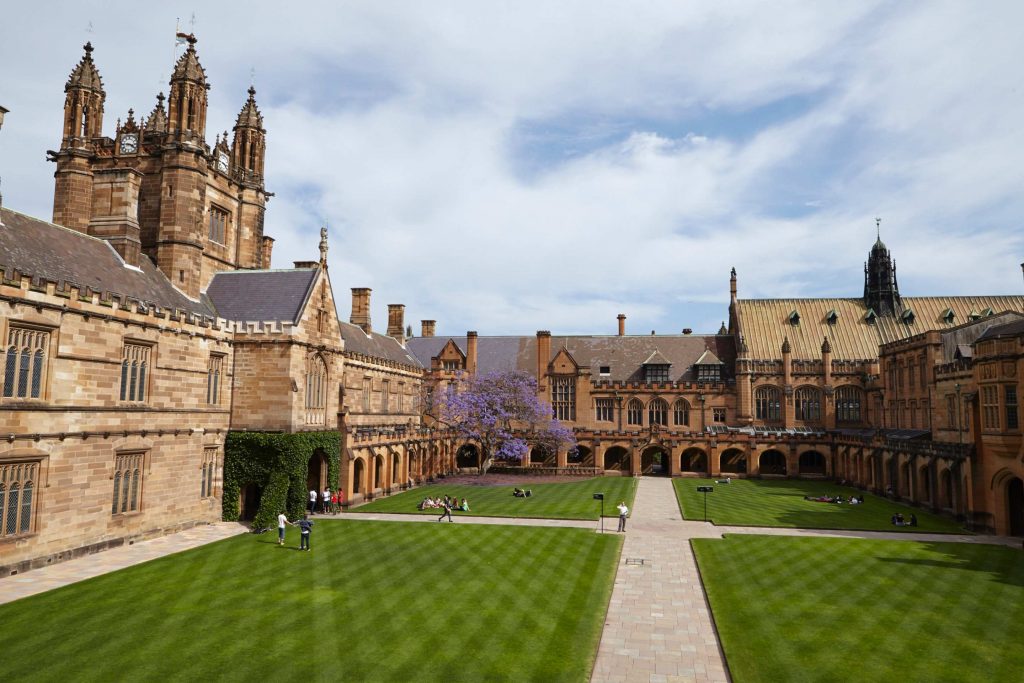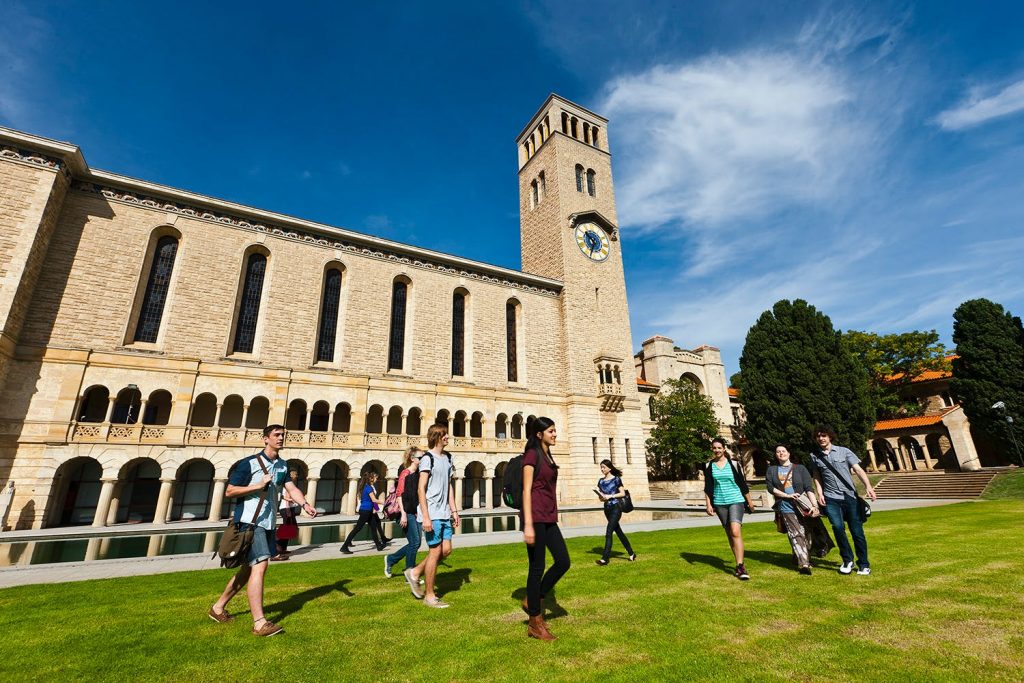
The majority of the world’s seven wonders – The Great Pyramids, Taj Mahal, were built with the assistance of Civil Engineers, proving that Engineers have existed, creating and crafting masterpieces even in those times. Who knows, perhaps you’re on the journey to build masterpieces through Civil Engineering? Read more to find out how to become a Civil Engineer in present times and options to study Civil Engineering in Australia.
What is Civil Engineering?
Civil Engineering is one of the oldest forms of Engineering. Looking at definitions, ‘Civil’ relates to civilians, or citizens and their concerns. On the other hand, ‘Engineering’ is the practice of utilising scientific and mathematical principles to solve problems in society.
In the case of Civil Engineering, the field centres problem-solving through the aspects of design, construction, and maintenance of physical human-made structures, such as highways, bridges, tunnels, buildings, or water treatment facilities. In short, Civil Engineers play an integral part in the welfare of the general public.
The tallest building in the world, standing as tall as 828 metres – The Burj Khalifa in Dubai, is just one example of a Civil Engineer’s contribution to society. Civil Engineers are also the ones who pioneered solar farms, and other important infrastructures essential in carrying out daily lives comfortably. That’s why the field of Civil Engineering stays relevant, especially with the rapid growth of technology.
What do Civil Engineers do?

Responsibilities and tasks of a Civil Engineer may differ depending on the type of work they do but they are typically in charge of:
1. Developing Designs and Plans
Civil Engineers develop detailed designs and plans by using software programmes to ensure design structures are safe and functional. Additionally, they could design physical aspects of transportation systems including highways, terminals, and railroads.
2. Assessing Structural Needs
Civil Engineers assess structural needs of buildings or infrastructure by determining construction methods, quality materials, and proper procedures. This enables them to smoothly organise and direct site activities as well as labour coordination.
3. Conducting and Analysing Sites
Civil Engineers conduct and analyse site locations, as well as the surrounding areas, to determine the feasibility of a construction project. This task is carried out throughout the project until the end for Civil Engineers to monitor progress and safety.
4. Managing Project Resources
Civil Engineers will manage project resources by overseeing and managing budgets as well as other project resources. They will study drawing specifications to estimate costs, prepare detailed cost plans, and comply with relevant regulations and guidelines.
5. Consulting Clients
Civil Engineers have the responsibility to consult with clients, stakeholders, or relevant authority bodies in order to carry out assigned construction projects. They will have to prepare reports with analysed data for parties involved.
Skills Required to Study Civil Engineering

- Innovative Problem Solving
At every step of a project, there is the possibility of arising issues – whether it be regarding material costs, resource shortage, or design. Innovative problem solving is needed to resolve these issues and ensure projects run smoothly.
- Design Software Proficiency
Advancement in technology has allowed for the Civil Engineering field to rely on software tools for the design and analysis of buildings or infrastructures. Design software proficiency aids in your success when having to utilise programmes like AutoCAD or Revit in your classes as well as when you step into the professional field of Civil Engineering.
- Sustainable Engineering Knowledge
Sustainability has been an important aspect in all sectors and fields. Sustainable practices are highly encouraged in Civil Engineering to ensure low impact developments which combat harmful environmental ways.
- Aptitude for Maths and Physics
Calculating structure or design specifications require complex formulas. In this regard, for a project to be secure and completely stand, mathematics and physics are vital elements in the equation for studying Civil Engineering.
- Familiarity with Construction Methods
The feasibility of a project does not only depend on its design. Executing Civil Engineering projects look at surrounding circumstances, making familiarity with construction methods and practises an essential asset in Civil Engineering.
Career Options for Civil Engineer Graduates
Listed below are some career options to venture into for Civil Engineer graduates:
- Civil Engineer
- Construction Manager
- Metallurgist
- Mining Engineer
- Structural Engineer
- Water Quality Manager
- Materials Engineer
- Environmental Engineer
- Geotechnical Engineer
- Surveyor
The average annual salary for a Civil Engineer in Australia ranges between AU$95,000 to AU$115,000. Salaries can vary depending on which region or city you plan to work in.
How to be a Civil Engineer in Australia

According to Labour Market Insights by the Australian Government, careers as Civil Engineering Professionals in Australia is deemed to be in demand with a strong projected growth of 13.4% (8,700) more jobs. As such, a career as a Civil Engineer in Australia has a positive employment outlook. Here are general steps you can take to become a Civil Engineer in Australia:
- First, complete SPM or equivalent examinations.
The initial step for your journey into becoming a Civil Engineer is to complete high school qualifications through SPM or any equivalent examination. It could greatly benefit future applications if you have taken Additional Mathematics or Physics subjects.
- Second, complete relevant pre-university qualifications.
Enrol and complete relevant pre-university study programmes which will qualify you into a Bachelor of Engineering programme in Australia.
You also have the option of enrolling in a Diploma of Engineering in Australia, taking up 8-12 months. This alternative route would enable you to gain entry to the second year of a Bachelor of Engineering programme in Australia. However, this is highly dependent on your scores and the institution you are enrolled in.
- Third, enrol in an accredited Bachelor of Engineering programme.
This step could take up to 4 years. Though, with a Diploma of Engineering, this step would take up 3 years. Accreditations for the Bachelor of Engineering programme in Australia are typically granted by Engineers Australia (EA).
- Next, obtain additional qualifications.
Completion of your Bachelors would allow for you to work as a Graduate Engineer. At this stage, you should gain professional experience for 3-5 years and/or enrol in postgraduate programmes in specific Engineering specialisation to gain more credentials before being able to become an established Civil Engineer.
- Afterwards, secure proper licensing.
In order to be able to practise as a Civil Engineer in Australia, you would need proper licensing. Depending on the Australian region you plan to work in, it may be a different process. Regardless, you can obtain the National Engineering Registration (NER) credential from Engineers Australia to become a legally and professionally recognised Civil Engineer.
One road to Permanent Residency (PR) in Australia is through occupation as a Civil Engineer. Civil Engineer Professionals are typically under the Medium and Long-term Strategic Skills List (MLTSSL) where an occupation is projected to be in demand for medium to long term duration. Civil Engineer Professionals under MLTSSL have the opportunity for migration to Australia such as via the subclass 494 (Skilled Employer Sponsored Regional (Provisional) visa. Keep in mind there are other visa subclasses that you may apply for.
When you are eligible to apply for permanent residency, you can apply for permanent resident visa such as subclass 190 (Skilled Nominated) visa. The choice of visa may vary from occupation, eligibility, regional preference and wish to acquire permanent residence.
General Entry Requirements to Study Civil Engineering
Do take note that most Civil Engineering programmes have a Mathematics subject prerequisite. Some programmes also call for English and/or a Science subject prerequisite.
Academic Entry | Minimum Score |
STPM | GPA 2.70 |
Matriculation | CGPA 2.60 |
A-Levels | Aggregate of 6 (Best 3 Subjects) |
UEC | Aggregate of 12 (Best 4 Subjects) |
IB Diploma | 25 |
Australian Matriculation (ATAR) | 80 |
Canadian Pre-University (CPU) | 70 |
Note: Universities may have different requirements. To learn more, get in touch with us!
English Language Entry Requirements
Entry Level | Minimum Score |
IELTS | 6.5 |
TOEFL | 70 |
Pearson Test of English (PTE) | 54 |
Note: Universities may have different requirements. To learn more, get in touch with us!
Top Universities to Study Civil Engineering in Australia
1. University of Sydney (USYD)

The University of Sydney, additionally referred to as USYD, was founded in 1850. USYD is Australia’s oldest university, as reflected by its sandstone exterior design. The University of Sydney was ranked 19th among universities worldwide in 2024 and is a member of the Group of Eight (Go8) network, marking it as an ideal study destination option.
For the Civil and Structural Engineering subject in 2024, the University of Sydney achieved the second spot among all universities in Australia. Students will have access to cutting-edge Engineering technologies, practical learning experiences, student Engineering competitions, student clubs and societies, as well as various professional engagement activities appropriate for students wishing to study civil engineering in Australia.
Programme Offered | Bachelor of Engineering Honours (Civil Engineering) |
Duration | 4 Years |
Intake | February, July |
Indicative Fees (2024) | International Students: AU$224,000 |
Contact us right now for a free consultation if you’d like more details about the costs, the format of the programme, and the entry requirements!
2. University of Western Australia (UWA)

The University of Western Australia, or UWA, was founded as the state’s first institution in 1911. The University of Western Australia is a noteworthy higher education learning institution, as indicated by its ranking in the top ten of Australian universities and top hundred globally for the year 2024.
The University of Western Australia was placed in the top 10 among universities in Australia for the Civil and Structural Engineering subject. UWA’s Bachelor of Engineering (Honours) programme allows students to major in Civil Engineering which retains experiential learning approaches with an integrated industrial practice alongside a provisionally accredited Engineering curriculum.
Programme Offered | Bachelor of Engineering (Honours) Major in:
|
Duration | 4 Years |
Intake | February, July |
Indicative Fees (2024) | International Students: AU$192,800 |
Contact us right now for a free consultation if you’d like more details about the costs, the format of the programme, and the entry requirements!
3. Deakin University

Deakin University, established in 1974, is a public tertiary education institution named after Alfred Deakin, Australia’s second prime minister. Deakin is a valuable study destination choice due to its ranking among the top 20 Australian universities and commitment to academic excellence.
In 2024, Deakin University was ranked in the top 15 of Australian universities for the Civil and Structural Engineering subject. Deakin’s accredited Bachelor of Engineering (Honours) with a major in Civil Engineering programme ensures graduates are equipped with technical knowledge and practical skills to generate innovative solutions to real-world Engineering problems.
Programme Offered | Bachelor of Engineering (Honours) Major in:
|
Duration | 4 Years |
Intake | March, July |
Indicative Fees (2024) | International Students: AU$163,200 |
Contact us right now for a free consultation if you’d like more details about the costs, the format of the programme, and the entry requirements!
4. University of Wollongong (UOW)

The University of Wollongong, known as UOW, was founded in 1975 and is a recognised public research university located in the coastal city of Wollongong, New South Wales, Australia. In 2024, the University of Wollongong ranked in the top 15 among universities in Australia.
Similarly, for the Civil and Structural Engineering subject in 2024, the University of Wollongong was in the top 15 among universities in Australia. The Bachelor of Engineering (Honours) – Civil Engineering programme by UOW offers an accredited curriculum with embedded industrial placement alongside access to fully-equipped laboratories and modern industrial workplaces.
Programme Offered | Bachelor of Engineering (Honours) – Civil Engineering |
Duration | 4 Years |
Intake | February, July |
Indicative Fees (2024) | International Students: AU$161,088 |
Contact us right now for a free consultation if you’d like more details about the costs, the format of the programme, and the entry requirements!
5. Western Sydney University (WSU)

Western Sydney University, abbreviated as WSU, is a multi-campus public research university with history dating back to the year 1989. In the year 2024, WSU is listed among Australia’s top 15 universities for the Civil and Structural Engineering subject.
For a comparatively affordable option to study Civil Engineering in Australia, Western Sydney University is the answer for you. The Bachelor of Engineering (Honours) (Civil Engineer) programme at WSU offers students an accredited and comprehensive Civil Engineering curriculum with opportunities for participation in student-led projects as well as hands-on industry experience to boost employability.
Programme Offered | Bachelor of Engineering (Honours) (Civil Engineering) |
Duration | 4 Years |
Intake | March, July |
Indicative Fees (2024) | International Students: AU$132,160 |
Contact us right now for a free consultation if you’d like more details about the costs, the format of the programme, and the entry requirements!
For more information regarding the university, programme offered, entry requirements and fees, contact Excel Education.
About The Author

Hannah Hir
Hannah appreciates various art forms, especially Asian literature, film and music. Most of her favorite Malaysian kuihs are green-coloured.

